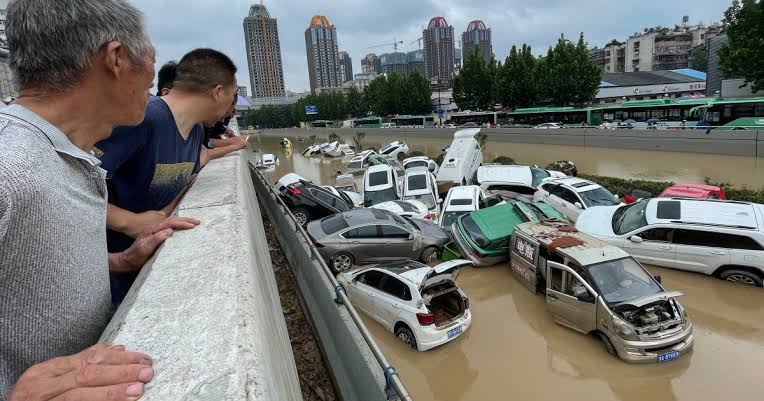
The accelerating pace of climate change means the world's biggest reinsurer is already cutting back its exposure to the sort of natural disasters that have swept through China, Germany, Canada and London in recent weeks:
bloomberg.com/opinion/articl…
bloomberg.com/opinion/articl…
Reinsurers, who provide insurance to insurance companies, are key to how the world pays for natural disasters.
They get less than 5% of the industry's premium fees but cover as much as two-thirds of its losses when catastrophes like earthquakes and cyclones strike:
They get less than 5% of the industry's premium fees but cover as much as two-thirds of its losses when catastrophes like earthquakes and cyclones strike:

Most of the disasters that have been in the news of late, though, aren't those large-scale cataclysms.
They're so-called "secondary perils" — smaller local events like flooding, wildfire, storms, hail.



They're so-called "secondary perils" — smaller local events like flooding, wildfire, storms, hail.




Reinsurers operate on a model where they just pay their cut if the financial losses whenever disaster strikes, so they can't really exclude secondary perils the way a primary insurer might have an exclusion written into their policy.
But they can look at their underwriting losses and notice where they're paying too much for secondary perils, and then pull back from (and raise prices in) those business areas.
That's what the world's biggest catastrophe reinsurer Swiss Re has been doing lately.
That's what the world's biggest catastrophe reinsurer Swiss Re has been doing lately.
There's a tendency in some quarters to assume that because we have a reinsurance industry set up to manage natural disaster risks, then we can manage away the financial risks of climate change.
Unfortunately it doesn't work like that!
Unfortunately it doesn't work like that!

Insurance isn't charity and all the money to fund disaster coverage ultimately comes from you, the consumer. Reinsurers' business is about modelling disaster risks and avoiding ones that hurt the bottom line. And they're as nervous about climate change as scientists are.
Do read the article, and follow @kmac who has been bringing people's attention to these trends for years, and has forgotten more on the subject than I will ever learn! bloomberg.com/opinion/articl…
• • •
Missing some Tweet in this thread? You can try to
force a refresh





